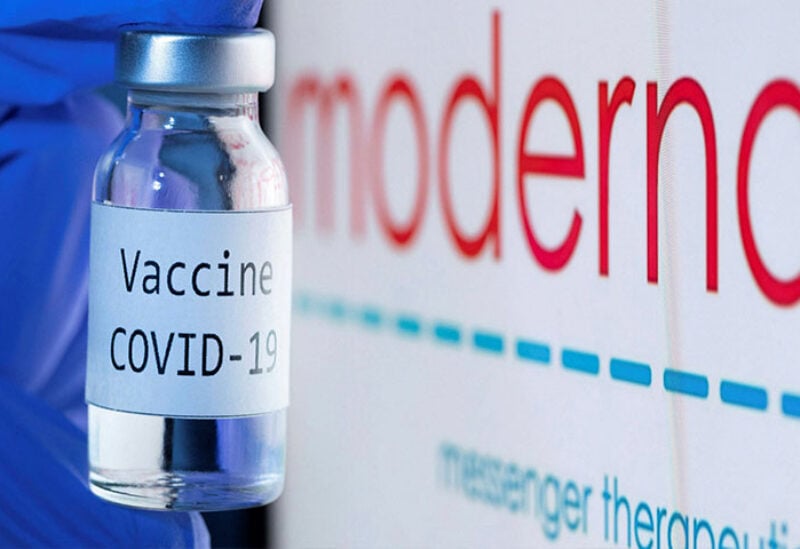
Moderna jabs
On Tuesday, drugmaker Moderna raised further concerns in financial markets by warning that COVID-19 vaccinations are unlikely to be as successful against the Omicron variation as they have been against the Delta variant.
Crude oil futures fell more than a dollar, the Australian dollar fell to a year low, and the Nikkei lost ground after Stéphane Bancel’s statements fueled worries that vaccination resistance would lead to increased illness and hospitalizations, extending the epidemic.
“I don’t think there is a world where (efficiency) is at the same level… as we had with Delta,” Moderna CEO Bancel told the Financial Times in an interview.
“I believe it will be a substantial decline. I’m just not sure since we have to wait for the data. But every scientist I’ve talked to says, ‘This isn’t going to work.’ “Bancel stated.
Omicron, which the World Health Organization (WHO) has classified as having a “very high” risk of infection spikes, has sparked worldwide concern, with border restrictions casting a pall over the country’s fledgling economic recovery after a two-year epidemic.
On Friday, news of its existence took almost $2 trillion off the value of global markets, though some calm was restored this week as investors awaited further details on Omicron’s qualities. FRX
President Joe Biden’s assurances that the US will not impose lockdowns had also helped calm markets before the Moderna CEO’s comments frightened investors.
Biden has advocated for more vaccination, while the Centers for Disease Control and Prevention has advised everyone over the age of 18 to get a booster injection. In response to Omicron concerns, the United Kingdom has extended its COVID-19 booster program.
“Due to the amount of mutations that may enable it spread or dodge antibodies from past infection or immunization, the World Health Organization designated Omicron as a “variant of concern.” Omicron was designated as a “variant of concern” by the World Health Organization owing to the amount of mutations that might aid in its spread or avoid antibodies from past infection or immunization.
CURBS IN HONG KONG EXPAND
Fear about the new version has spurred nations around the world to strengthen border restrictions fast in order to avoid a repeat of last year’s draconian lockdowns and severe economic downturns. more info
The Hong Kong government has increased a prohibition on admission for non-residents from a number of nations. Non-residents from Angola, Ethiopia, Nigeria, and Zambia will be denied entry as of Nov. 30.
Non-residents who have visited Austria, Australia, Belgium, Canada, the Czech Republic, Denmark, Germany, Israel, or Italy in the previous 21 days will also be barred from entering the city starting of December 2.
The global financial center, one of the latest to pursue a zero-COVID approach, has already barred non-residents from South Africa, Botswana, Eswatini, Lesotho, Malawi, Mozambique, Namibia, and Zimbabwe from entering.
Five travelers in Australia tested positive for Omicron.
They have been vaccinated and are in quarantine, according to authorities, who added that they are asymptomatic or have very weak symptoms.
Singapore’s health ministry stated that two Johannesburg residents who tested positive for the variation in Sydney had transited through Changi airport.
Authorities in Australia have also discovered a sixth passenger who was most likely infected with the variation and had previously spent time in the community.